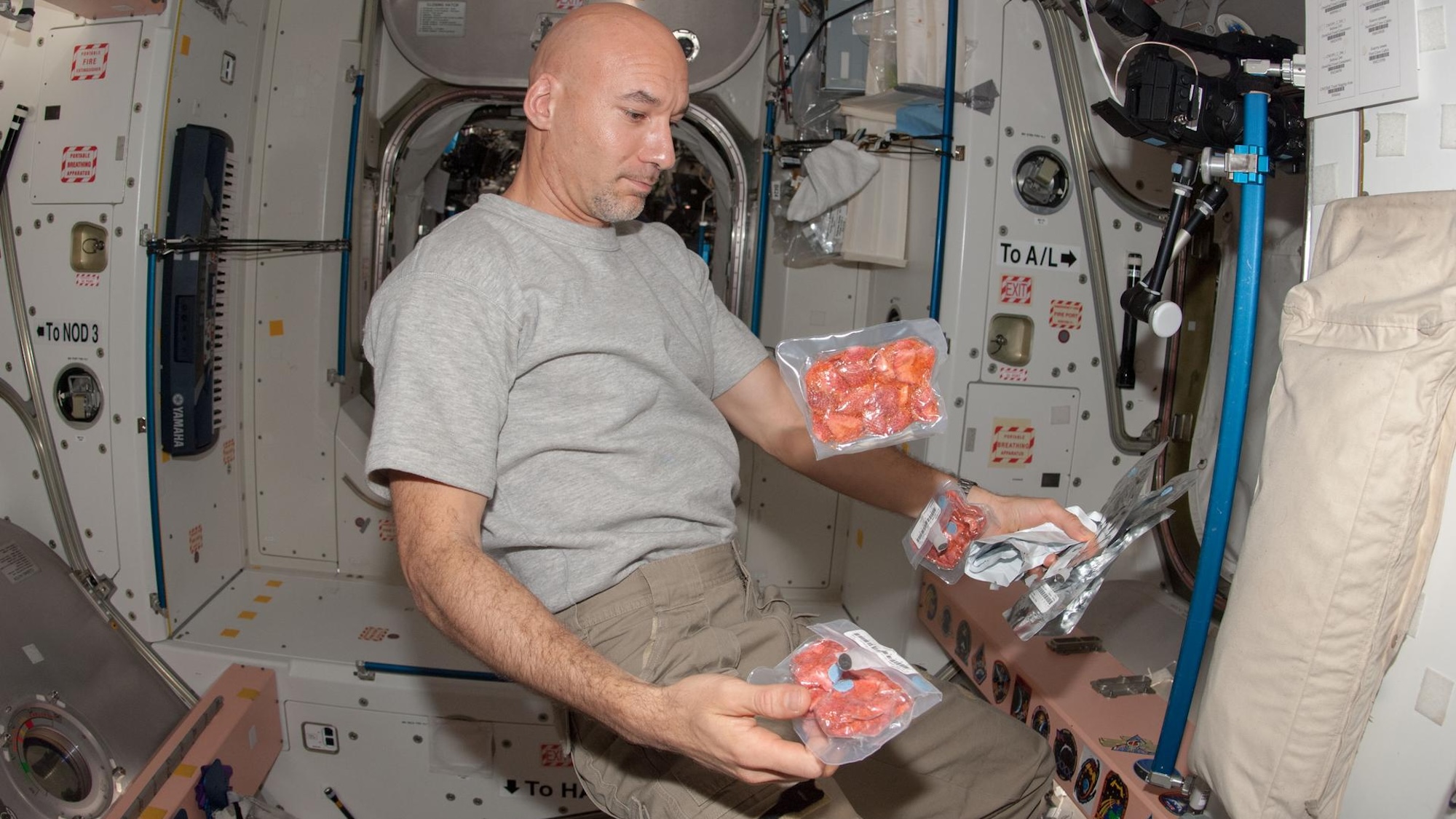

Researchers say they may finally have an explanation why astronauts often lose their appetite in space. Thanks to a first-of-its-kind study involving virtual reality headsets, experts could soon learn the ingredients necessary to solve this issue affecting not just space travelers, but more isolated populations, such as nursing home residents.
New arrivals to the International Space Station need time to adjust physically and psychologically to life in zero gravity, but one major effect on the body is particularly challenging. While floating in space, an astronaut’s internal fluids tend to move upwards, creating nasal congestion and facial swelling that affect the senses of taste and smell.

Even after these symptoms subside over a few weeks, ISS dwellers still often contend with a sustained loss of appetite after noticing meals taste blander and more unappealing. This then makes it difficult to maintain their necessary and carefully determined nutritional intake. And as difficult as it already is to handle aboard the ISS, keeping astronauts healthy will be even more critical if they ever hope to make longer trips to the moon or Mars.
As detailed in a new study published on June 16 in the International Journal of Food Science, a team at Australia’s Royal Melbourne Institute of Technology set out to determine what else might influence appetites in zero gravity. Instead of attempting to test their theories in the ISS, however, they opted for a simpler, simulated alternative—virtual reality headsets.
After strapping on VR goggles displaying a room within the ISS, 54 volunteers recorded their experience smelling samples of lemon essential oil, as well as vanilla and almond extracts. They then described how these aromas differed when smelled in a normal environment here on Earth. In general, participants found the sweeter vanilla and almond scents stronger during their VR space trip while the lemon oil’s intensity remained unchanged. This was even the case despite remaining firmly here on Earth.
[Related: Let this astronaut show you around the International Space Station.]
“The incredible thing with this VR study is that it really does go a very long way to simulating the experience of being on the space station. And it really does change how you smell things and how you taste things,” Gail Iles, a former astronaut instructor and RMIT co-researcher, Gail Iles, said in an accompanying statement.
The team’s food chemists then honed in on a specific sweet-scented chemical called benzaldehyde as a possible explanation paired with an individual’s sensitivity to certain aromas.
Researchers believe intensified food aromas could be a major aid in future tailored menus designed specifically to stimulate astronaut appetites. But such practices aren’t limited to cosmic exploration.
“The results of this study could help personalize people’s diets in socially isolated situations, including in nursing homes, and improve their nutritional intake,”Julia Low, study lead researcher and a professor in RMIT’s School of Science, said in the statement.
While further testing is needed, finding and boosting chemicals like benzaldehyde may soon become a staple of future astronaut menus, both aboard and beyond the ISS.
